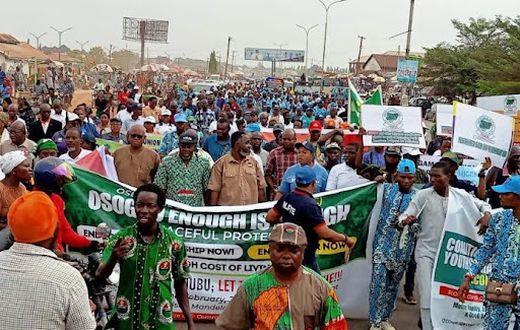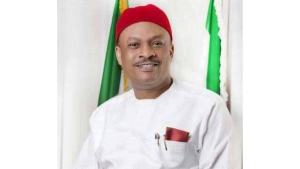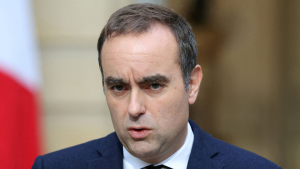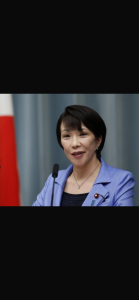
Following recent wage increases by several Nigerian states, labour unions and federal workers are calling for an urgent review of the national minimum wage, currently set at ₦70,000.
Since the federal minimum wage was last increased in July 2024, various states including Imo, Lagos, Rivers, Bayelsa, Niger, Enugu, Akwa Ibom, Ogun, Delta, Benue, Osun, and Ondo have raised salaries above this benchmark. Imo State notably set its minimum wage at ₦104,000 in August 2025.
Workers argue that inflation coupled with rising costs of food, housing, transport, and electricity have eroded the value of ₦70,000, rendering it insufficient to cover basic living expenses.
Benson Upah, Acting General Secretary of the Nigeria Labour Congress (NLC), stated: “The truth is that ₦70,000 is not sustainable under the present economic situation. Workers are under immense pressure, and unless the government responds quickly, the crisis of survival will only worsen.”
He emphasized that while dialogue remains ongoing, industrial action cannot be ruled out if the government fails to address the crisis.
The President of the Association of Senior Civil Servants of Nigeria (ASCSN), Shehu Mohammed, praised the wage hikes by states as a “wake-up call” to the federal government.
He reaffirmed the union’s initial demand for a living wage of ₦250,000, arguing that the ₦70,000 minimum wage only covers costs to reach the workplace, not to support a family: “₦70,000 only takes a worker to the office gate, not back home.”
Federal civil servants have voiced similar frustrations. Mrs. Kemi George lamented that after transport and food expenses, little remains to pay rent or school fees, while Mr. Obi Chimaobi described the wage as untenable for supporting a family, warning that many workers incur debt just to survive each month.
Labour leaders insist that increasing wages must be accompanied by policies to reduce the overall cost of living, including affordable housing, healthcare, and subsidized transportation.
They argue that proper wage adjustments would restore dignity to workers and stimulate economic growth through increased consumer spending.
The minimum wage increase signed by President Bola Tinubu in July 2024 raised the federal minimum wage from ₦30,000 to ₦70,000 monthly, but persistent inflation and macroeconomic challenges continue to erode its real value.
Some states’ adjustments highlight growing disparities within the country’s wage landscape and intensify calls for federal action.
Recent state-level wage revisions include:
- Imo: ₦104,000
- Lagos: Raised to ₦85,000 with plans for ₦100,000 in 2025
- Rivers: ₦85,000
- Bayelsa, Niger, Enugu, Akwa Ibom: ₦80,000
- Ogun and Delta: ₦77,000
- Benue and Osun: ₦75,000
- Ondo: ₦73,000
The calls for wage reviews come amid escalating inflation rates, which have caused food prices, housing costs, and energy expenses to rise sharply.
This economic strife threatens the welfare of millions of Nigerian workers who rely on minimum wage earnings.








